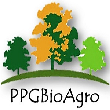Banca de DEFESA: CLEOMAR ATILIO CIGOLINI
Uma banca de DEFESA de MESTRADO foi cadastrada pelo programa.DISCENTE : CLEOMAR ATILIO CIGOLINI
DATA : 30/11/2022
HORA: 08:00
LOCAL: Web Conferência - Google Meet
TÍTULO:
THE NATIONAL SCHOOL FEEDING PROGRAM ITS LIMITS AND POTENTIALITIES FOR THE DEVELOPMENT OF FAMILY AGRICULTURE IN THE SOUTHERN AMAZON
PALAVRAS-CHAVES:
Public Funding. National School Feeding Program. Food Purchase Program. Sustainable development. Food production.
PÁGINAS: 89
GRANDE ÁREA: Ciências Sociais Aplicadas
ÁREA: Economia
SUBÁREA: Economias Agrária e dos Recursos Naturais
ESPECIALIDADE: Economia Agrária
RESUMO:
The scope of the research is based on family agriculture and the highlighting of public policies that support its development, which promote job and income generation and provide food and nutritional security for the population. As an example of public policy, the National School Meals Program (PNAE) is cited, which aims to combat food insecurity in the school environment. Moreover, as expressly provided in Article 14 of Law No. 11947/2009, with the application of at least 30% of its resources in the acquisition of products from family agriculture. Given this scenario, the general objective of the study, sought to analyze the limits and potentialities of the National School Meals Program as a driving force for promoting the development of family agriculture in the municipality of Alta Floresta, Mato Grosso, in the southern Amazon. In this sense, the study was divided into two chapters, in which, the first aims to analyze the PNAE itself, the limits and potentialities for its realization and the second chapter, to characterize the socioeconomic profile of family farmers who are assisted by PNAE. Thus, due to the multidisciplinary nature of the research, different methodologies were used, such as bibliometry, as it is a statistical and quantitative technique that measures the production and dissemination rates of scientific knowledge, using Bibliometrix, a tool developed in R programming language, to process the bibliometric data obtained from the Scopus databases. Besides the collection of secondary data from the municipality of Alta Floresta, Mato Grosso, and the literature review. In the second part, we used a descriptive and exploratory research methodology with a qualitative-quantitative approach. With this, the results observed in the research, between the years 2011 to 2021, show that the municipality has found it difficult to achieve the minimum indices as defined in the legislation, recording on average 16.93% of investments of PNAE resources in the acquisition of products from Family Farming. Moreover, there was a low variation in the transfers from FNDE to the municipality, as opposed to an accumulation of 58.89% in inflationary losses. As for the results of the second chapter, it can be observed that 61% of the family farmers are over 51 years old, and that they face difficulties in logistics/transportation with 28% of the indications, and bureaucracy to commercialize their production with 24%. Moreover, an important institutional market such as the Food Purchase Program (PAA) shows a tendency to retract, representing in 2021, 3.18% of the value reached in 2012, the year with the highest peak of investment. Finally, the study proposes some actions to the actors involved to achieve the objectives proposed in the law and offer better conditions for school meals and family farmers. Furthermore, the family farmer of Alta Floresta (MT) is aging and young people need public policies to strengthen programs such as PNAE and PAA to generate income and create an attractive environment to stay in the field.
MEMBROS DA BANCA:
Presidente - 117161001 - SANTINO SEABRA JUNIOR
Interno - 255123001 - ALEXANDRE DE AZEVEDO OLIVAL
Externo ao Programa -
Externo ao Programa -



